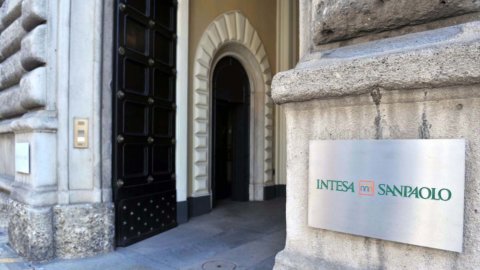THE CENTRAL BANKERS CHARGE THE BULL
MILAN + 4,3%. BANKS AND CARS FLY
Ours are coming. In a move probably agreed on the sidelines of last weekend's G7, the major central banks announced their support for eurozone banks by eliminating the risk of a Lehman Brothers-style liquidity crisis. The news has literally given wings to the stock exchanges. Piazza Affari marks a rise of 4,3%, closely followed by Paris and Frankfurt which rise by 3,7%. Both Unicredit and Intesa San Paolo deserved a suspension for excess of +10%. Stocks are now up 5,4% and 7,6% respectively. Among the banks in evidence also Bnp Paribas (+14,7%), Deutsche Bank (+9%), SocGen (+7,54%). Insurance also did well with Allianz up 7,55%, Ing up 6,9% and Generali up 2,81 percent. The stocks of the auto sector (+3,35%) stand out with Fiat rising by 5,33%, Michelin (+4,22%), Renault (+3,89%).
THE SPREAD WITH THE BUND DROP TO 356
3 MONEY INJECTIONS FOR EUROPE
Meanwhile, the spread between BTPs and Bunds dropped to the lows of the day at 356 basis points, down by 14 basis points compared to yesterday. The German 11-year yield rises by 2 cents or almost 1800 percent. Gold, on the contrary, falls below the level of 1789 dollars an ounce to 428. The intervention of the central banks has pushed the American macro data into the background, anything but positive. Claims for unemployment benefits rose to 11 (+8,82), well beyond expectations. Meanwhile the Empire State index, which measures the health of New York's manufacturing industry, worsened to -575, well below the consensus. But the negative notes cannot overshadow the great surprise of the coordination of the monetary authorities. In summary, the European Central Bank, the Bank of Japan, the Bank of England and the Swiss Bank, in a coordinated move with the US Federal Reserve, have committed to provide in "three separate operations over the next three months" dollar loans to eurozone banks. It is a very important novelty for several reasons. First of all, because it banishes the nightmare of a liquidity crisis that had materialized in recent weeks on the wave of news of inspections by the New York Federal Reserve of the American offices of European banks. A concern that was confirmed yesterday in the ECB bulletin which resulted in loans, at onerous conditions, for 2008 million to two European institutions. In short, the fear was that the worm of mutual distrust, one of the main causes of the 09/XNUMX recession, would set in again. Central bank intervention erases this risk. But above all the concerted action of the central bankers is the sign of a harmony between the authorities that seemed distant.





